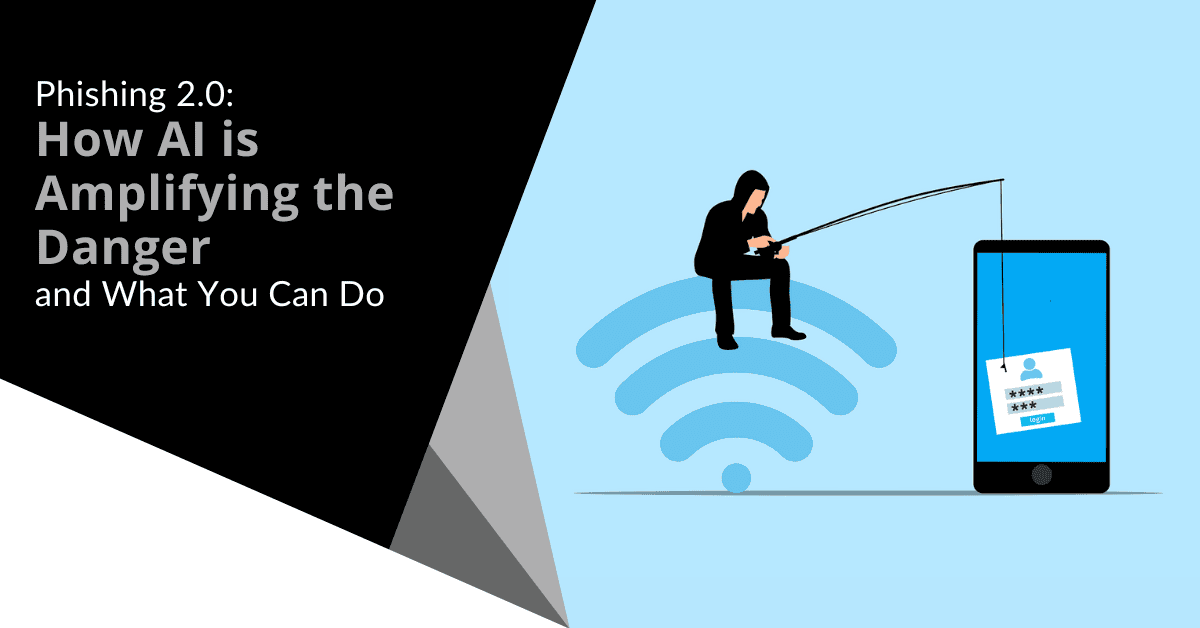Phishing has always been a threat. Now, with AI, it's more dangerous than ever. Phishing 2.0 is here. It’s smarter, more convincing, and harder to detect. Understanding this new threat is crucial.
A recent study found a 60% increase in AI-driven phishing attacks. This is a wake-up call that phishing is only getting worse. Here’s how AI is amplifying phishing and what you can do to protect yourself.

The Evolution of Phishing
Phishing began simply. Attackers sent out mass emails. They hoped someone would take the bait. The emails were often crude, using poor grammar and obvious lies were common. Many people could spot them easily.
But things have changed. Attackers now use AI to improve their tactics. AI helps them craft convincing messages. It also helps them target specific individuals. This makes phishing more effective.
How AI Enhances Phishing
Creating Realistic Messages
AI can analyze huge amounts of data. It studies how people write and speak. This helps it create realistic phishing messages. These messages sound like they come from a real person. They mimic the tone and style of legitimate communications. This makes them harder to spot.
Personalized Attacks
Artificial Intelligence (AI) has the capability to collect data from various sources, including social media, and use this information to generate personalized messages. These messages may contain details about your personal life, such as your profession, hobbies, or recent activities, making them appear more credible.
Automated Phishing AI can automate many aspects of phishing, including sending out thousands of phishing messages quickly and adapting messages based on responses. For instance, if someone clicks a link but doesn’t provide information, AI can send a follow-up email, increasing the likelihood of a successful attack.
Deepfake Technology Deepfakes, which use AI to create realistic fake videos and audio, can be used in phishing attacks. Attackers might create a video of a CEO requesting sensitive information, adding a new layer of deception and making the phishing attempt even more convincing.
The Impact of AI-Enhanced Phishing AI-enhanced phishing can lead to increased success rates for attackers, more data breaches, and greater damage. Traditional phishing detection methods may struggle to detect these sophisticated attacks, making it easier for attackers to succeed.
How Guardian Can Help
Guardian can provide assistance in several ways:
Be Skeptical
Guardian encourages users to always be skeptical of unsolicited messages, even if they appear to come from a trusted source. It helps users verify the sender’s identity and avoid clicking on links or downloading attachments from unknown sources.
Check for Red Flags
Guardian helps users identify red flags in emails, such as generic greetings, urgent language, or requests for sensitive information.
Use Multi-Factor Authentication (MFA)
Guardian promotes the use of MFA, which adds an extra layer of security. Even if an attacker obtains your password, they’ll need another form of verification to access your accounts.
Educate Yourself and Others
Guardian provides education about phishing tactics and the latest threats. It helps users share this knowledge with others, helping them recognize and avoid phishing attacks.
Guardian can provide managed Security Awareness Training!
Verify Requests for Sensitive Information
Guardian advises users to never provide sensitive information via email. If a request is received, it helps users verify it through a separate communication channel.
Use Advanced Security Tools
Guardian recommends investing in advanced security tools. Anti-phishing software can help detect and block phishing attempts, and email filters can screen out suspicious messages.
Guardian has this already!
Report Phishing Attempts
Guardian encourages users to report phishing attempts to their IT team or email provider. This helps improve security measures and protect others from similar attacks.
Guardian has the technology to allow your employees to do this easily!
Enable Email Authentication Protocols
Guardian advises users to enable email authentication protocols like SPF, DKIM, and DMARC to protect against email spoofing.
Guardian can do this!
Regular Security Audits
Guardian recommends conducting regular security audits to identify vulnerabilities in your systems and prevent phishing attacks.
Guardian can do this!
Need Help with Safeguards Against Phishing 2.0?
Phishing 2.0 is a serious threat, and AI amplifies the danger, making attacks more convincing and harder to detect. Guardian can assist with an email security review. Contact us today to schedule a chat about phishing safety.
